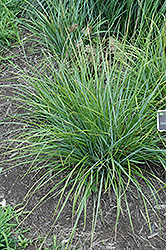It's all about ...
plants

Blue-green Moor Grass
Sesleria heufleriana
Plant Height: 18 inches
Flower Height: 24 inches
Spread: 24 inches
Sunlight:
![]()
![]()
Hardiness Zone: 4a
Other Names: Blue Green Moor Grass
Description:
A striking blue-green grass that is very good for mass planting as a groundcover; a colorful edging, or accent clump in the garden or border; gets bluer as the season progresses
Ornamental Features
Blue-green Moor Grass's attractive grassy leaves emerge light green in spring, turning bluish-green in colour on a plant with a spreading habit of growth. The foliage often turns aqua bluish-green in fall. It features dainty spikes of black flowers with buttery yellow anthers in early spring.
Landscape Attributes
Blue-green Moor Grass is an herbaceous evergreen perennial grass with a ground-hugging habit of growth. It brings an extremely fine and delicate texture to the garden composition and should be used to full effect.
This is a relatively low maintenance plant, and should not require much pruning, except when necessary, such as to remove dieback. It has no significant negative characteristics.
Blue-green Moor Grass is recommended for the following landscape applications;
- Mass Planting
- Border Edging
- General Garden Use
- Groundcover
Planting & Growing
Blue-green Moor Grass will grow to be about 18 inches tall at maturity extending to 24 inches tall with the flowers, with a spread of 24 inches. Its foliage tends to remain dense right to the ground, not requiring facer plants in front. It grows at a medium rate, and under ideal conditions can be expected to live for approximately 10 years. As an evegreen perennial, this plant will typically keep its form and foliage year-round.
This plant does best in full sun to partial shade. It is very adaptable to both dry and moist locations, and should do just fine under typical garden conditions. It is considered to be drought-tolerant, and thus makes an ideal choice for a low-water garden or xeriscape application. It is not particular as to soil type or pH. It is somewhat tolerant of urban pollution. This species is not originally from North America. It can be propagated by division.
This plant is not reliably hardy in our region, and certain restrictions may apply; contact the store for more information.
